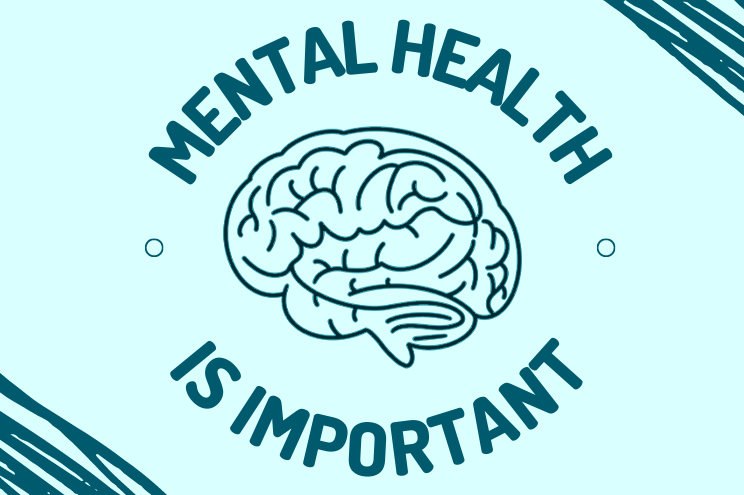Table of Contents
Introduction
Mental health and wellbeing have become increasingly prominent topics in recent years. With the rise of digital technologies, changing social dynamics, and the impact of global events like the COVID-19 pandemic, more people are recognizing the importance of mental health. This article explores the latest trends in mental health, including the factors contributing to mental health issues, the rise of digital health solutions, and practical tips for improving mental wellbeing.
Understanding Mental Health
Common Mental Health Conditions
Mental health encompasses a wide range of conditions that affect mood, thinking, and behavior. Common conditions include anxiety disorders, depression, bipolar disorder, and schizophrenia. Each of these conditions can have a profound impact on a person’s daily life, relationships, and physical health.
The Impact of Mental Health on Physical Health
Mental health is closely linked to physical health. Poor mental health can lead to physical health issues such as heart disease, diabetes, and weakened immune function. Conversely, chronic physical conditions can contribute to mental health problems, creating a cycle that is difficult to break.
Misconceptions About Mental Health
Despite growing awareness, misconceptions about mental health persist. Many people still view mental health issues as a sign of weakness or believe they can be overcome through sheer willpower. Education and awareness are key to breaking down these stigmas and encouraging people to seek the help they need.
Factors Contributing to Mental Health Issues
Role of Technology and Social Media
Technology and social media have dramatically altered how we interact with the world. While these tools offer connectivity and convenience, they also contribute to increased anxiety, depression, and feelings of isolation. The pressure to maintain a certain image on social media, along with constant notifications and comparisons, can take a toll on mental health.
Impact of the Pandemic
The COVID-19 pandemic has been a major disruptor, causing widespread uncertainty, fear, and loss. The pandemic’s impact on mental health is profound, with many people experiencing increased levels of stress, anxiety, and depression. Lockdowns, social distancing, and changes to daily routines have all contributed to a decline in mental wellbeing.
Workplace Stress and Burnout
Workplace stress and burnout are significant contributors to mental health issues. High workloads, long hours, and the pressure to perform can lead to chronic stress, which negatively affects mental and physical health. Employers and employees alike must recognize the importance of mental health in the workplace and take steps to reduce stress.
The Role of Digital Health Solutions
Rise of Mental Health Apps and Platforms
Digital health solutions have revolutionized mental health care, making support more accessible than ever. Apps like Headspace, Calm, and BetterHelp offer meditation, therapy, and counseling services that can be accessed from anywhere. These platforms provide convenient, affordable options for those seeking mental health support.
Benefits of Teletherapy and Online Counseling
Teletherapy and online counseling have grown in popularity, particularly during the pandemic. They offer a flexible alternative to traditional in-person therapy, allowing individuals to receive support from the comfort of their homes. This has been especially beneficial for those in remote areas or with mobility challenges.
Challenges with Digital Mental Health Solutions
Despite their benefits, digital mental health solutions come with challenges. Privacy concerns, the quality of care, and the need for personalized treatment are important considerations. It’s crucial for users to carefully evaluate the apps and platforms they use to ensure they are receiving reliable and effective support.
Lifestyle Changes to Improve Mental Wellbeing
Importance of Exercise and Physical Activity
Regular exercise is one of the most effective ways to improve mental health. Physical activity releases endorphins, which help reduce stress, anxiety, and depression. Even simple activities like walking, yoga, or dancing can have significant positive effects on mood and overall wellbeing.
The Role of Diet and Nutrition
Nutrition plays a crucial role in mental health. A diet rich in fruits, vegetables, lean proteins, and whole grains can boost mood and energy levels, while a diet high in processed foods and sugars can contribute to mental health issues. Making mindful food choices supports both physical and mental health.
Sleep Hygiene and Its Effects on Mental Health
Good sleep hygiene is essential for mental health. Poor sleep can exacerbate symptoms of anxiety and depression, while adequate rest improves mood, cognitive function, and resilience to stress. Establishing a regular sleep routine and creating a restful environment can greatly improve sleep quality.
Coping Strategies and Techniques
Mindfulness and Meditation
Mindfulness and meditation are powerful tools for managing stress and anxiety. These practices encourage a focus on the present moment, helping individuals break free from cycles of negative thinking. Apps, guided sessions, and community classes are widely available to help beginners get started.
Cognitive Behavioral Therapy (CBT) Techniques
Cognitive Behavioral Therapy (CBT) is a widely-used approach for treating a variety of mental health conditions. CBT techniques help individuals identify and challenge negative thought patterns, leading to healthier behaviors and improved emotional regulation. Many online resources offer self-guided CBT exercises.
Building Resilience and Emotional Intelligence
Resilience and emotional intelligence are key components of mental wellbeing. Resilience involves the ability to bounce back from setbacks, while emotional intelligence encompasses understanding and managing emotions. Both can be developed through practice, self-reflection, and seeking feedback from others.
Workplace Mental Health
The Importance of Mental Health in the Workplace
Mental health is crucial in the workplace, affecting productivity, employee satisfaction, and overall organizational success. Companies that prioritize mental health see benefits in reduced absenteeism, increased engagement, and better team dynamics.
Strategies for Employers to Support Mental Health
Employers can support mental health by creating a positive work environment, offering mental health resources, and promoting work-life balance. Providing access to counseling services, mental health days, and flexibility can make a significant difference in employee wellbeing.
Employee Self-Care and Setting Boundaries
Employees also play a role in maintaining their mental health at work. Setting boundaries, taking breaks, and practicing self-care are essential strategies for managing stress and avoiding burnout. Open communication with employers about needs and concerns can help create a more supportive work environment.
Community and Support Systems
Role of Community Support
Community support is a powerful factor in mental health. Engaging with community groups, volunteering, or participating in local events can foster a sense of belonging and purpose. Community support networks provide a valuable source of emotional and practical support.
Importance of Family and Friends
Family and friends are often the first line of support for those struggling with mental health issues. Open, honest communication and a willingness to listen without judgment are crucial. Encouraging loved ones to seek professional help when needed is an important part of supporting their mental health journey.
Access to Mental Health Resources
Access to mental health resources varies widely, but awareness of available options is improving. Local clinics, hotlines, online platforms, and community centers are all potential sources of help. Efforts to improve access and reduce barriers to care are ongoing and critical to supporting mental health.
Future of Mental Health Care
Emerging Trends in Mental Health Care
The future of mental health care is evolving with advancements in technology, increased awareness, and innovative treatment approaches. Trends such as personalized medicine, virtual reality therapy, and community-based interventions are gaining traction.
The Potential of AI in Mental Health
Artificial intelligence (AI) is poised to play a significant role in mental health care. AI can assist in early diagnosis, provide personalized treatment recommendations, and offer real-time support through chatbots and virtual assistants. While promising, the integration of AI in mental health care requires careful consideration of ethical and privacy concerns.
Advocacy and Policy Changes
Advocacy and policy changes are essential to improving mental health care. Efforts to increase funding, reduce stigma, and improve access to services are ongoing. Public awareness campaigns, legislative action, and community initiatives all contribute to a more supportive environment for mental health.
Conclusion
The rise of mental health and wellbeing as a priority reflects a broader societal shift toward understanding and supporting mental health. From digital health solutions to lifestyle changes and community support, there are many ways individuals and organizations can promote mental wellbeing. As we continue to learn and innovate, the future of mental health care holds promise for a more accessible, compassionate approach to mental health.


